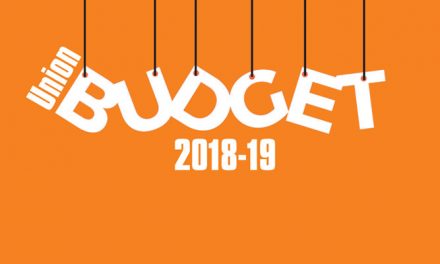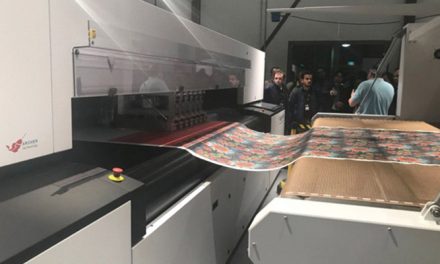
The industry welcomed the Union Budget 2024-25 presented by the Hon’ble Union Finance Minister Nirmala Sitharaman, which is encouraging, positive, and growth-oriented. We are covering reactions from the industry…
We are covering reactions from the industry…
 Rakesh Mehra, Chairman, Confederation of Indian Textile Industry (CITI)
Rakesh Mehra, Chairman, Confederation of Indian Textile Industry (CITI)
Rakesh Mehra congratulated the Hon’ble Finance Minister Nirmala Sitharaman for presenting her 6th budget which is aimed at making India a Viksit Bharat by 2047 with a focus on complete development, all-inclusive, and all-pervasive. Speaking on the budget, Mehra said that there has not been any major policy announcement in the present budget, being an interim budget but the industry needs immediate relief from the financial stress, especially in the spinning sector.
The budget allocation for Textiles has increased by 27.6%, largely due to the allocation of Rs 600 crore for CCI towards the cotton MSP operations. He expressed hope that the cotton procurement will be as per revamped policies recommended by user industry associations to ensure price stability and discourage speculative trading. CITI has recommended commencing selling the cotton from February/ March depending upon the arrival pattern, retaining the MSP procured cotton as a buffer stock, releasing the cotton whenever the Indian cotton price exceeds the international price, extending a uniform fee period of 60 days for all the actual users, etc.
He further stated that the Apparel industry is happy to note the extension in the RoSCTL scheme for 2 years. However, in the present budget, the allocation for RoSCTL and RoDTEP has increased by 10% and 5.8% respectively, which is modest. The industry is trying to enhance export performance and expects better allocations for trade promotion in the full budget to be announced after the elections. Industry appreciates the increased allocations towards PM MITRA and National Technical Textile Mission (NTTM) and Research & Capacity Building highlighting the stress of the Government on the investment. However, the slow uptake of PLI and an absence of alternatives to the TUFS scheme is impacting investment in the sector. The industry has also been requesting for closure of the pending TUFS cases at the earliest.
Mehra expressed his happiness towards the focus on stimulating domestic consumption which may drive economic expansion and can be good for all manufacturing segments, including textiles, which are facing demand slump. The commitment to maintaining a fiscal deficit of 5.1%, and ensuring fiscal discipline while supporting economic growth is poised to help in this.
While in the present budget, the Government has not made any changes in the existing BCD & Indirect taxation, we are extremely sure that the Government will consider the Industry’s demand to remove the import duty from Cotton and Cotton Waste as also increase the BCD on MMF Yarn from present 5% to 10% to curb cheaper imports and reduce blockage of working capital, in the full budget, said Mehra.
Mehra applauded the focus on empowering MSMEs for growth and global competitiveness,
Energy Security, Commitment to meet Net Zero by 2070, Promoting investments through increased expenditure towards infrastructure development, and increased focus on bilateral treaties in the spirit of ‘First Develop India’.
 Rajesh Masand, President, Clothing Manufacturers Association of India (CMAI)
Rajesh Masand, President, Clothing Manufacturers Association of India (CMAI)
CMAI welcomed the decision by the Union Cabinet to extend the Scheme for Rebate of State and Central Taxes and Levies (RoSCTL) for export of Apparel/Garments and Made ups upto
31st March 2026.
CMAI President, Rajesh Masand, thanked the Government and in particular, the Ministry Of Textiles saying that the “Continuation of Scheme for proposed duration of two (2) years will provide predictability and stability which is essential for long term trade planning, more so in the textiles sector where orders can be placed in advance for long term delivery.”
“The RoSCTL Scheme is in line with the universally accepted principle of International Trade that taxes and duties should not be exported, to enable a level playing field in the international market for exports” he added.

Sunil Patwari, Chairman, The Cotton Textiles Export Promotion Council (TEXPROCIL)
The “Interim Budget 2024” unveiled by the Finance Minister Nirmala Sitharamanon February 1, 2024 marks the second Budget in the Amrit Kaal. The announcement of the Union Budget 2024 coincides with the Indian economy continuing to grow at the world’s fastest rate of any major economy.
Welcoming the Budget for 2024, Chairman Texprocil said that it is centered around policies that will support India’s economy as it continues to grow and approaches the $5 trillion mark. Though this Budget has retained the same tax rates, some reforms announced by the Government will benefitthe farmers, youth and women among others”, remarked Shri Sunil Patwari, Chairman of The Cotton Textiles Export Promotion Council (TEXPROCIL).
It is indeed a welcome move that the Budget has increased the revised estimate for the RoDTEP Scheme from Rs. 15669 crto Rs. 16575 crand for RoSCTL from Rs. 8405 cr to Rs.9246 cr said Shri Patwari.
Chairman, Texprocil further exclaimed that the continuation of the RoSCTL Scheme upto 31st March 2026 for duration of two years will provide stable policy regime which is essential for long term trade planning, more so in the textiles sector where orders can be placed in advance for long term delivery. This will further lessen the burden of taxes and levies and provide level playing field in the Sector.
This increase, though modest, aligns with the government’s commitment to establish India as a key global player in the textile industry.
 Dr. S.K.Sundararaman, Chairman, The Southern India Mills’ Association (SIMA)
Dr. S.K.Sundararaman, Chairman, The Southern India Mills’ Association (SIMA)
The interim Union Budget for the year 2024-25 announced today maintains status quo as far as tax rates are concerned, also taking care of the ongoing projects and infrastructure development activities, as the Government intends to make the country a developed one by 2047. The Government has been giving priority for inclusive growth and infrastructure development for the past few years and the required momentum has been maintained in the interim budget.
Dr.S.K.Sundararaman, Chairman, The Southern India Mills’ Association (SIMA) welcomed the interim Union Budget, considering the Lok Sabha election to be held shortly and he has hoped that the demands of the textile industry relating to the raw material issues and few other industry demands might be considered in the full-fledged budget. He welcomed the overall increased allocation of around27.60% for the Ministry of Textiles for the year 2024-25 when compared the previous year, towards various schemes being operated by them including PM MITRA Park, NITTM, A-TUFS, ISDS,RoTDEP, RoSCTL, etc., apart from making allocation for Cotton Corporation of India to exercise MSP operation for cotton. He further welcomed the announcement of measures to encourage green power including bio-manufacturing, roof top solar, offshore wind etc., so as to reduce the carbon footprint and appreciated the various pro-active initiatives in the budget to prepare the country for meeting the sustainability goals. He welcomed the continuous efforts made in strengthening the logistics infrastructure facilities, aimed at reducing the transaction cost and thereby increase the global competitiveness of the manufacturing sectors in the country.
Dr.Sundararaman said that the Association had sought for removal of 11% import duty on ELS cotton, exempting the same for other cotton varieties exclusively during off season (April to October) to protect the interests of farmers; announcement of Technology Mission on Cotton- II to increase the cotton production, productivity and doubling the farmers’ income; exempting the manmade fibre imported under the Advance Authorization Scheme from the respective Quality Control Orders and exempting manmade fibres that are not produced indigenously from the Quality Control orders. He hoped that the Government would consider these measures in the full-fledged budget.
 Vinod Kumar Gupta, Managing Director, Dollar Industries Limited
Vinod Kumar Gupta, Managing Director, Dollar Industries Limited
“We applaud the government’s vision to shape India into a Vikasit Bharat by 2047. As a responsible corporate entity, we are dedicated to contributing to this transformative path for the nation’s prosperity. The decision to maintain the existing income tax slabs is a positive step, offering stability and predictability for taxpayers, crucial for sustaining economic growth and promoting individual financial planning. We express gratitude for the government’s commitment to retaining the current tax rates for companies, LLPs, and individuals. The India-Middle East-Europe Economic Corridor opens unprecedented opportunities for businesses to broaden their horizons and participate in cross-border trade. The corridor’s focus on connectivity and infrastructure development resonates with the logistical and supply chain requirements of industries such as textiles. We acknowledge the government’s proactive and all-encompassing approach in the interim budget. We eagerly anticipate contributing to the shared journey toward a more robust, inclusive, and sustainable India. In this interim budget, the government has suggested a capital expenditure (Capex) of 11.11 lakh Crores, aiming to enhance the purchasing capacity of each individual”,
 Amar Nagaram, Amar Nagaram, Virgio
Amar Nagaram, Amar Nagaram, Virgio
Finance Minister Sitharaman, in the interim budget announcement, encapsulated the remarkable growth witnessed by the nation in the last six years. Noteworthy initiatives such as green India initiatives, technological advancements, and startup-friendly budgets, including PM Mudra Yojana, which approved 43 crore loans totalling Rs. 22.5 lakh crore for the entrepreneurial aspirations of the youth, have played a pivotal role in the country’s economic progress. Additionally, schemes like Fund of Funds, Startup India, and Start-Up Credit Guarantee have significantly contributed to the advancement of our youth.
FM Sitharaman emphasised a golden era for tech-savvy youth, introducing a corpus of Rs. 1 lakh crore with a fifty-year interest-free loan. This corpus aims to provide long-term financing or refinancing with extended tenors and low or negligible interest rates, fostering research and innovation in sunrise domains within the private sector. This move is particularly beneficial for D2C startups in India.
The circular aspect of Virgio aligns with the broader vision outlined in the budget, striving to create an ecosystem where sustainability and innovation coexist. We eagerly anticipate contributing to this transformative journey by utilising technology and research to shape a fashion industry that not only upholds the highest standards of quality but also champions’ environmental responsibility. The proposed measures will undoubtedly inspire and empower fashion brands to further integrate circular practices and innovative technologies into their business models.

















